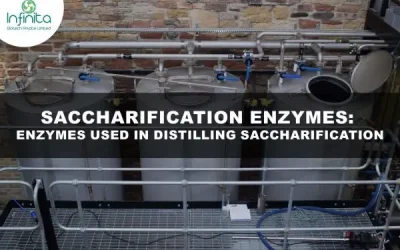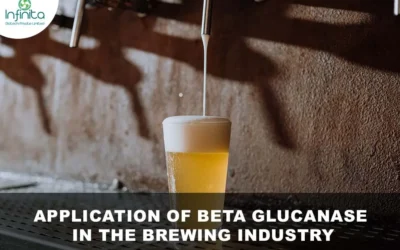Introduction to Enzymes in Craft Distilling What are Enzymes? Enzymes are biological catalysts that accelerate chemical reactions within living organisms. They’re crucial for various processes, including digestion and metabolism. In craft distilling, enzymes play a...
Brewery Enzymes Manufacturers
What are Brewery Enzymes?
In beer manufacturing, barley grain is malted (germinated under controlled conditions) and kilned. This malt is extracted to give wort. The wort is cooked and treated with hops, fermented with yeast, filtered and stabilised.
In mashing, the aim is to produce maximum quantities of fermentable sugars in a liquor which is easy to filter. Key enzyme activities are Alpha Amylase, Beta Glucanase and Xylanase may also be of some importance.
Beta-Glucan hydrolysis is required to enhance the rate of wort and beer filtration and to prevent the formation of Beta-Glucan hazes in the final product.
Enzymes play a crucial role in the brewing industry, where their application is highly valued throughout the beer manufacturing process. In the mashing stage, enzymes in the brewing industry, such as Alpha Amylase, Beta Glucanase, and Xylanase, are employed to optimize the production of fermentable sugars in the malted barley. These beer enzymes break down complex carbohydrates, such as starches and beta-glucans, into simpler sugars that can be easily fermented by yeast during the brewing process. By utilizing these enzymes, brewers can achieve maximum sugar extraction, resulting in a higher yield of alcohol and improved flavor profiles. Moreover, the presence of beta-glucanase enzymes is vital to enhance wort and beer filtration rates, preventing the formation of hazes caused by beta-glucans in the final beer product. The strategic use of enzymes in beer production exemplifies their significance in the brewing industry, contributing to the creation of high-quality, flavorful beers that satisfy consumers’ tastes and preferences.
Brewers who desire raw material cost savings or use of local raw materials may source under-modified malts or increase the ratio of adjunct. The limiting factor is to ensure an adequate complex of enzymatic activities for high-quality wort.
We offer a range of blended products to ensure sufficient FAN, extract yield, filterability, and fermentability for high-quality index final beers. Cost effective adjunct and malt solutions are made with Beta Glucanase, Xylanase, Alpha Amylase and Protease.
Furthermore, in addition to our blended products for optimizing wort quality, we also provide specialized enzymes for alcoholic fermentation, ensuring efficient and consistent fermentation processes. These alcoholic fermentation enzymes play a crucial role in the conversion of sugars into alcohol, facilitating the production of high-quality beers with desired flavors and alcohol content. Enzymes used in alcohol fermentation, such as amylases and proteases, assist in breaking down complex carbohydrates and proteins, allowing yeast to effectively metabolize the available sugars and produce alcohol. By incorporating these enzymes in the brewing process, brewers can enhance the fermentability of the wort, achieving optimal alcohol production and flavor development. Our comprehensive range of enzymes for alcoholic fermentation is designed to meet the specific needs of brewers, empowering them to create exceptional beers that satisfy consumers’ preferences while maintaining cost-effective production practices. Enzymes in alcoholic fermentation play a vital role in ensuring consistent and efficient fermentation, contributing to the overall success and quality of the brewing process.

Our Solutions

Mid Temperature Alpha Amylase
Mid temperature alpha amylase for converting starch into dextrins.Enhanced Starch Conversion
Excellent Wort Yield
Consistent Beer Quality
Glucoamylase
These enzymatic products can be applied for the Maturation process in Brewery.Antioxidant Properties
Enhances Beer Flavor
Enhances Beer Clarity
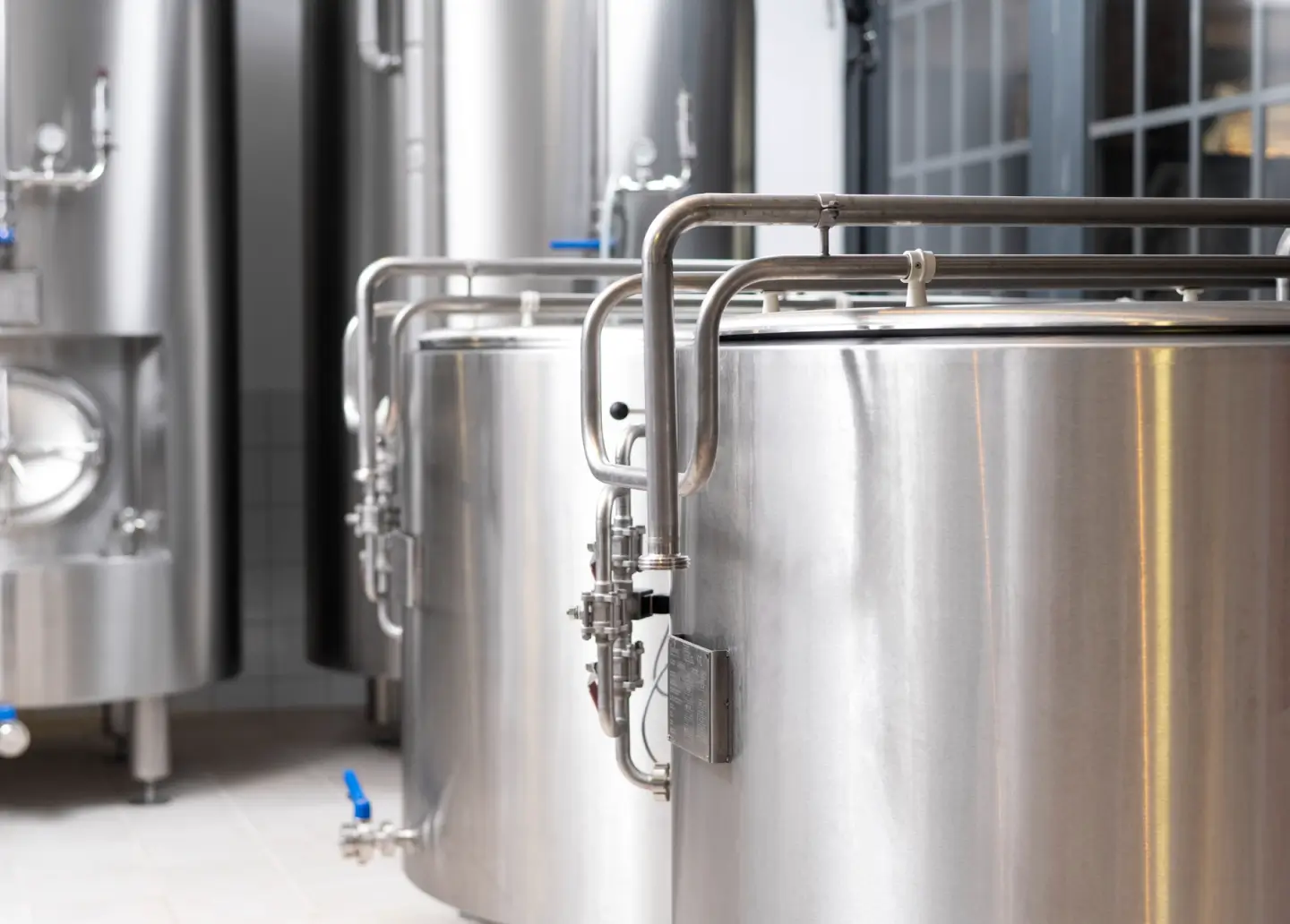
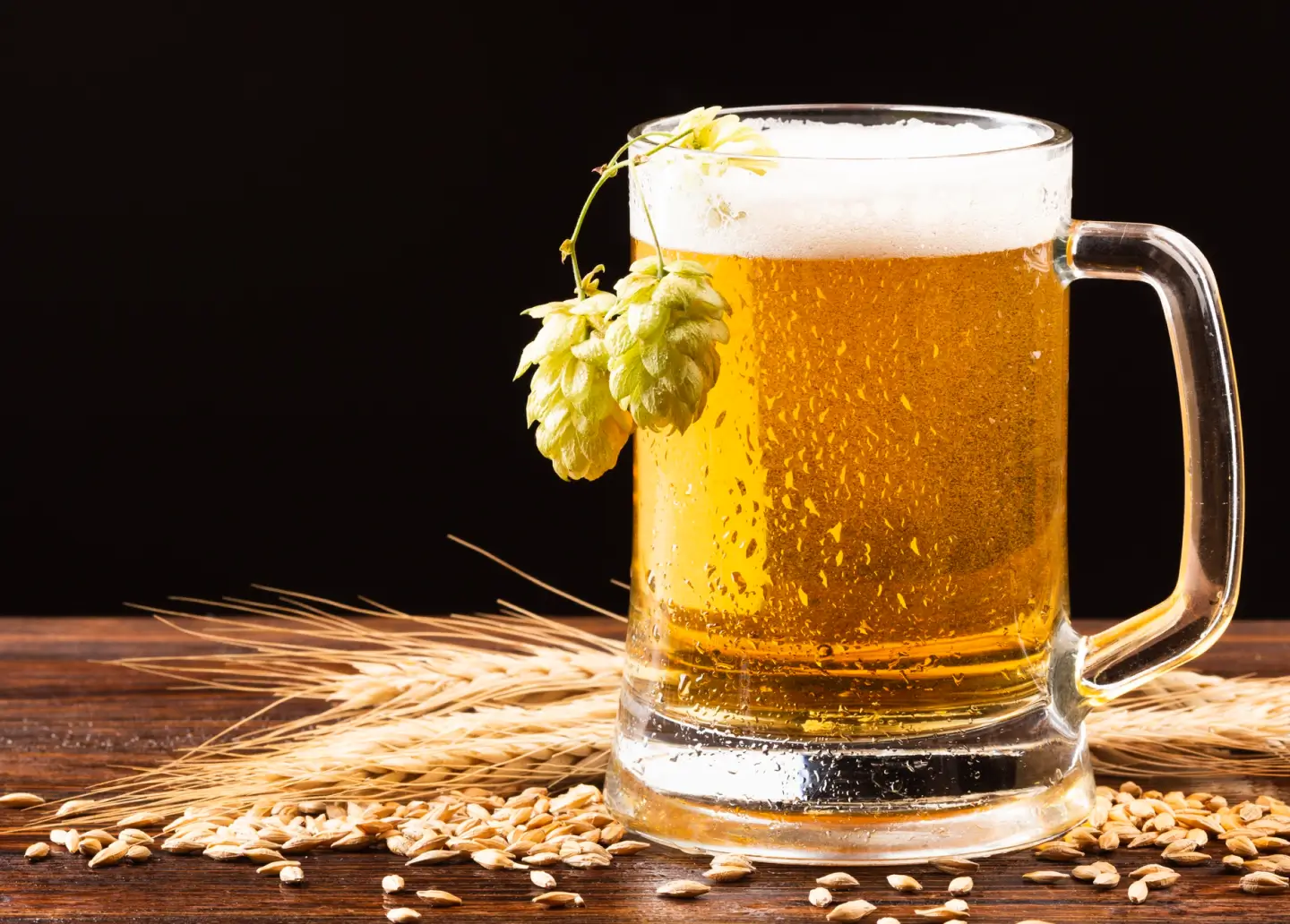
Beta Glucanase
Beta glucanase enzyme to break down beta glucans present in barley and other grains.Reduces Mash Viscosity
Increases Fermentable Sugar Extraction
Promotes Better Beer Clarity
Multi Enzyme Blend
Fomulated blend of enzymes designed for mashing in brew houses.Hydrolysis of Adjuncts
Reduces Viscosity
Better Filteration Rate

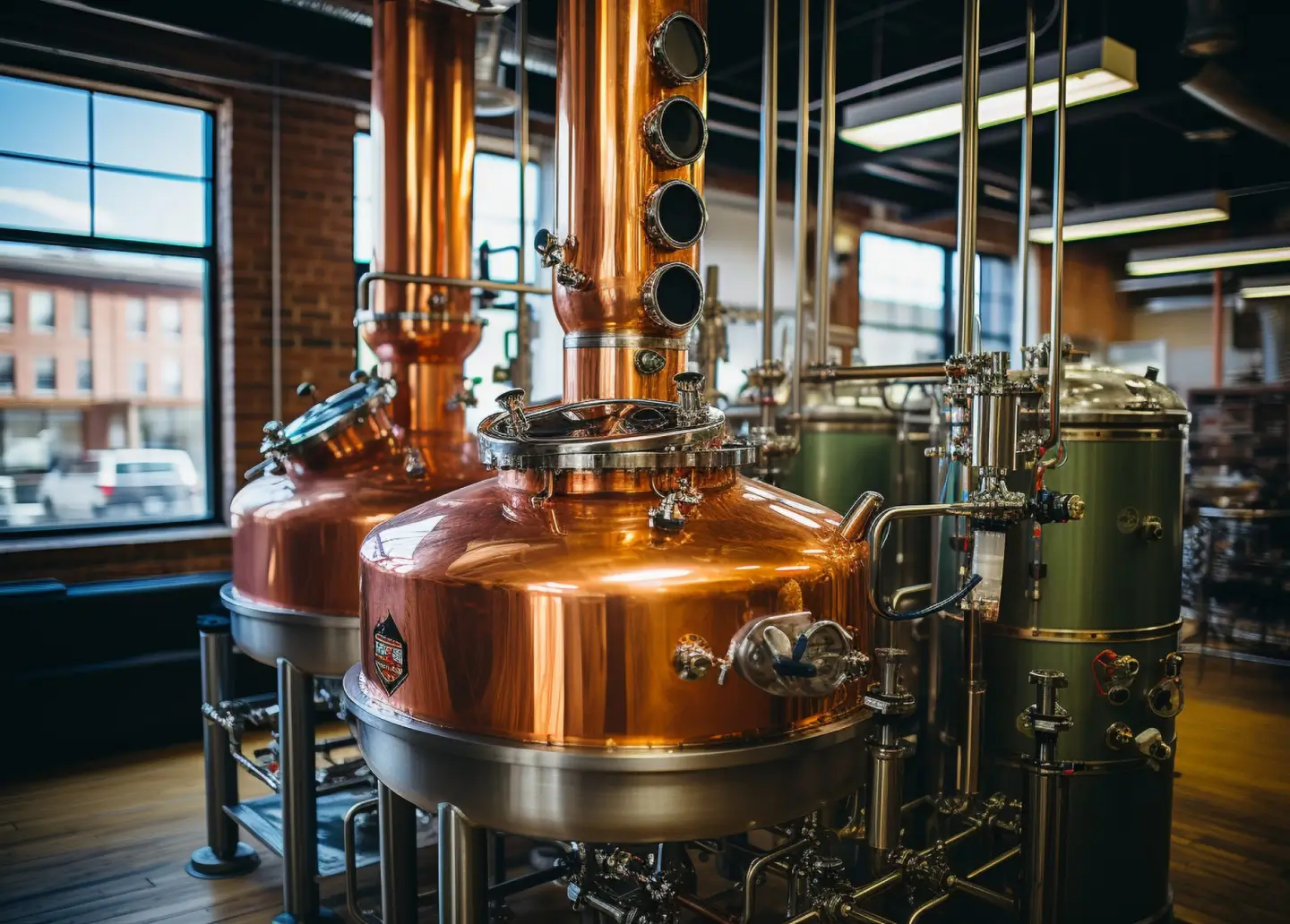
ALDC
Alpha-acetolactate decarboxylase enzyme preparation to minimize diacetyl formation.Reduces Maturation Time
Prevents Off-Flavors
Increases Brewing Throughput
Papain
Papain enzyme preparation to break down haze causing proteins.Clarifies Beer Quickly
Reduces Haze Formation
Enhances Filtration Efficiency

Related Blogs & Insights
Application Of Saccharification Enzymes
Introduction Saccharification enzymes play a crucial role in breaking down complex carbohydrates into simpler sugars, primarily glucose. These enzymes are widely used in industries such as biofuel production, food processing, brewing, and pharmaceuticals, where sugar...
Application Of Beta Glucanase In The Brewing Industry
Beer and wine have been an indispensable part of our social life since time immemorial. In the brewing industry, both beverages are produced by yeast fermentation of sugars. Grapes are the basis for wine and barley is an essential ingredient for beer, since they...
Frequently Asked Questions ,Brewery Enzymes
What is the process of brewing?
What enzymes are used in the brewing industry?
Which enzymes are used industrially to remove beer haze?
What temperature is too high for mash?
What is maturation in brewing?
For A Greener Tomorrow
Committed to advancing eco-friendly biotechnology for a healthier planet.

